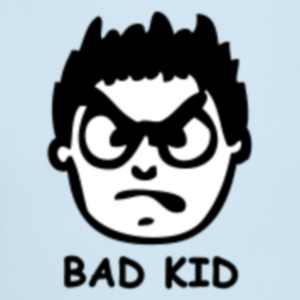What Parents Wish Teachers Knew About Children with Mental Illness
My oldest son, Bob, is ten years old and in the fourth grade this year. As such, I have been involved with our local public school district for five years. Since Bob's formal diagnosis (mood disorder, ADHD) in the spring of his kindergarten year, I have been working with--and against--teachers, counselors and school administrators in an effort to allow my son the best quality education possible.
 We've been relatively lucky. The majority of Bob's teachers have been willing to learn the ins and outs of childhood psychiatric illness; in particular, the way Bob's illness affects him and his ability to learn. For the most part, the administration at his elementary school have been very good about working with Bob in terms of discipline.
We've been relatively lucky. The majority of Bob's teachers have been willing to learn the ins and outs of childhood psychiatric illness; in particular, the way Bob's illness affects him and his ability to learn. For the most part, the administration at his elementary school have been very good about working with Bob in terms of discipline.
But it wasn't that way from the start. We didn't simply drop Bob off at school the first day and know everything would be swell. It's taken a lot of patience and explaining, emails and letters and phone calls, to get to this point. And in one and a half short years--Bob will move on to another school.
Wouldn't everyone's lives be easier if the education staff knew a few things about us and our children?
For starters:
1. We aren't drug addicts. Our child is not the way he is because we are junkies, or abusive, or absent, or just plain horrible parents. Yes, there are horrible parents out there--but not all of them have horrible kids; and not all good parents have good kids.
2. We aren't trying to turn our children into drug addicts. Psychiatry is hardly an exact science; child psychiatry is even more obtuse. There's a lot of trial and error involved in treating childhood psychiatric illness, and it may seem as if our kids are always on a formulary of pills. For just about all of us, medication is a last resort when all else has failed.
 3. Our kids don't want to be "the bad kid." It shouldn't surprise you when my child expresses a sincere interest in learning to control his anger, or learning better study techniques, or how to control his anxiety so he doesn't have to take so many restroom breaks. This isn't their choice.
3. Our kids don't want to be "the bad kid." It shouldn't surprise you when my child expresses a sincere interest in learning to control his anger, or learning better study techniques, or how to control his anxiety so he doesn't have to take so many restroom breaks. This isn't their choice.
4. Not all mentally ill children grow up to be criminals. Please don't refer to my child as "our future thug." It's unprofessional and hurts my feelings. Besides, many mentally ill people live seemingly "normal" lives.
5. I don't always have the answer. No, I don't know what "triggers" my child's outbursts. There may be no triggers, period. I don't know how to prevent his anxiety attacks--if I did, I would have taught him already. I am doing the best I can and spend a lot of time researching to try to do better.
It's a short list; I could add to it, but these are the basics. In simplest terms: we want educators to see our kids as kids--not just another burden for them to handle.
APA Reference
McClanahan, A.
(2012, February 27). What Parents Wish Teachers Knew About Children with Mental Illness, HealthyPlace. Retrieved
on 2026, January 8 from https://www.healthyplace.com/blogs/parentingchildwithmentalillness/2012/02/what-parents-wish-teachers-knew-about-children-with-mental-illness
Author: Angela McClanahan
Dearest Angela,
I just found your website tonight out of total and utter desperation to find some support. My son was diagnosed at two with BP. I didn't know what that was, and if "The Bipolar Child" hadn't come out that same year, who knows how bad things could have gotten. I'm writing this to you as someone is just a few years ahead of you in terms of dealing with the school system. Elementary school is a pink cloud compared to what you will deal with the minute you hit middle school. It is a horrible transition for bipolar children, and the understanding teachers and volunteering opportunities you experienced their..end their. My son had to physically pulled from my car to get him into the school. The teachers are uninterested in his diagnosis, and even having an IEP is of little help. I tell you this because I wish I had had any kind of heads up about the drastic difference when they hit middle school. This has been the most challenging year of my life, and I don't know how I have survived it. Their are so many things they need to be teaching teachers today. Their own curriculum needs to change before things will ever get better. One teacher even told me "I see the problems many of my kids have, but they tell me it's not my job to diagnose. Just teach the material."
Thank you for this website.
Diane